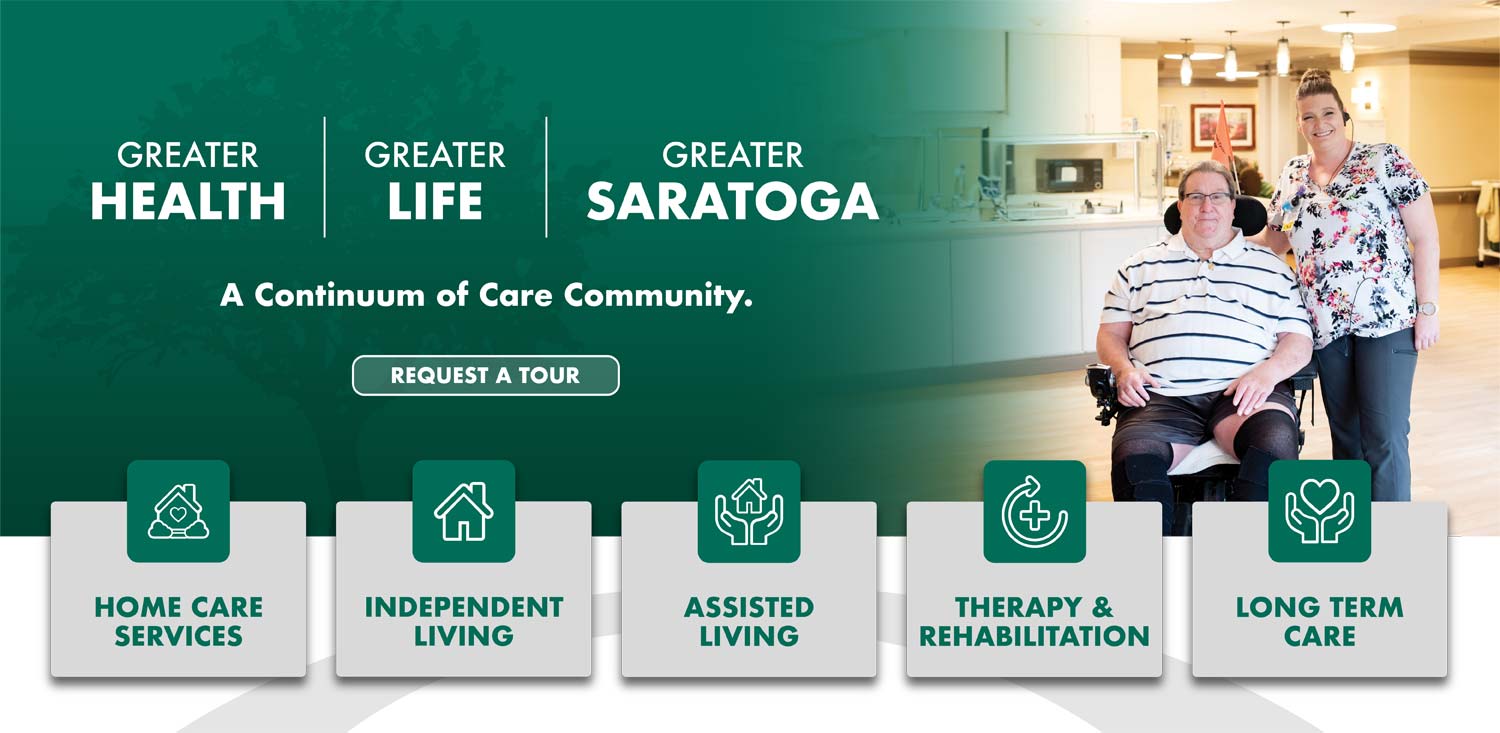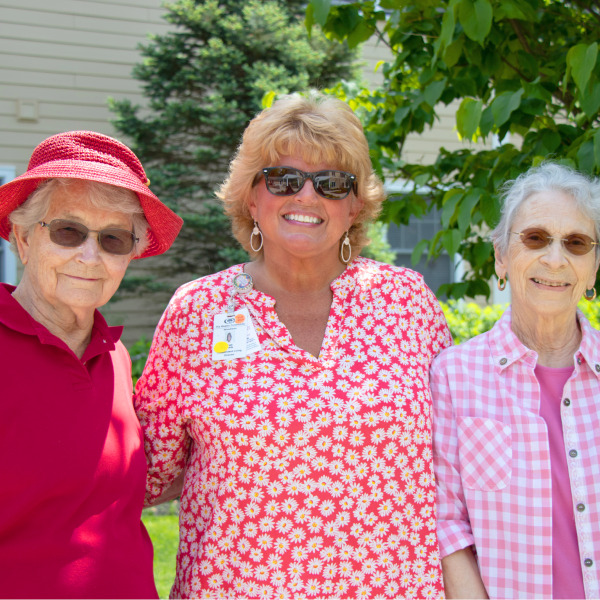Offering a unique blend of maintenance-free living, supportive care services and a wide variety of conveniences in the heart of Saratoga Springs, The Wesley Community empowers seniors to live independently with choices, confidence and peace of mind.
From affordable independent senior housing, independent and assisted living apartments to compassionate skilled nursing and memory care, we are able to provide seniors with the full continuum of care all on one campus.








